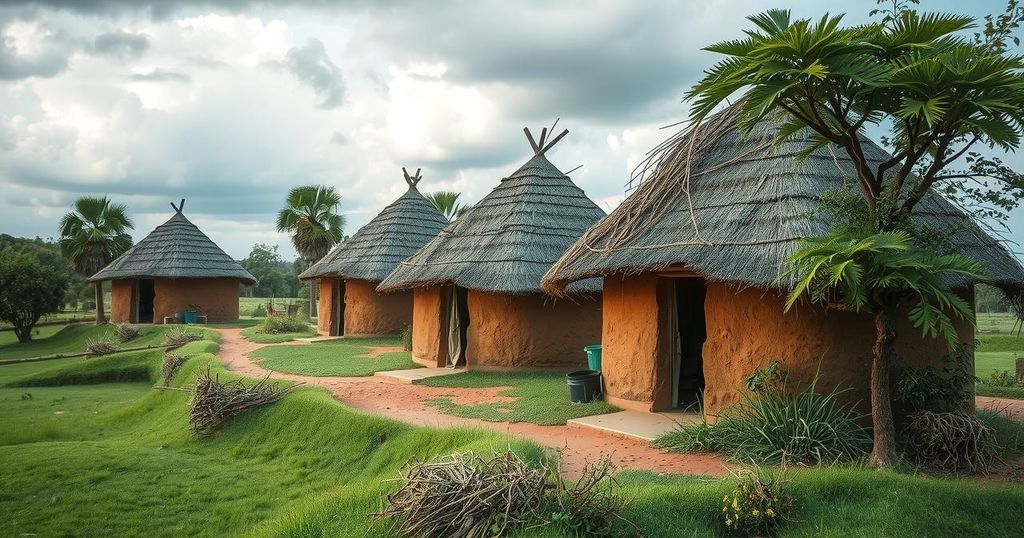Warning of Deterioration: South Sudan Peace Deal Faces Collapse

Professor Jok Madut Jok warns of the deteriorating peace agreement in South Sudan, suggesting a return to civil conflict due to escalating tensions between President Kiir and First Vice President Machar. He highlights increasing communal violence, a failing economy, and the government’s neglect of its national soldiers while prioritizing foreign troops. Jok calls for accountability and unity among citizens to ensure their leaders respect human rights and avoid further chaos in the nation.
Professor Jok Madut Jok, a distinguished political analyst from South Sudan and professor of anthropology at Syracuse University, cautioned that South Sudan is on the brink of a renewed civil war as the 2018 peace agreement deteriorates. In his interview with Radio Tamazuj, he expressed significant alarm regarding the rising tensions between President Salva Kiir and First Vice President Riek Machar. The opposition party, SPLM/A-IO, led by Dr. Machar, now faces a crucial decision: accept the political situation or resume armed conflict.
Prof. Jok emphasized that the peace agreement is faltering, stating, “The SPLA-IO must decide whether to swallow their pride or go back to the bush to fight. This is a detrimental decision for the country.” He elaborated on Dr. Machar’s precarious circumstances, describing him as being effectively under house arrest with fragmented leadership. Jok noted that the ruling SPLM-IG party has preemptively claimed positions meant for other political factions, thereby indicating President Kiir’s diminishing commitment to the peace accord.
Moreover, Prof. Jok warned that without intervention, the agreement is poised for complete collapse, stating, “The SPLM-IG will consolidate power, exclude others, and the agreement will no longer hold.” He predicted that the opposition would ultimately need to decide between compliance or resistance, which places the future of the peace deal at a precarious juncture.
Addressing the alarming uptick in violent communal conflicts throughout South Sudan, Prof. Jok believes these are directly linked to the political turmoil in Juba. He remarked on the intensifying clashes between ethnic groups, asserting that although the Revitalized Agreement on the Resolution of the Conflict in South Sudan (R-ARCSS) may have halted fighting between militaries, it has failed to provide genuine peace for ordinary citizens who continue to suffer from violence.
The economic situation in South Sudan appears dire, with Prof. Jok lamenting the impact of failed agricultural seasons, market collapses, and war-induced trade disruptions. He expressed concerns that a return to extensive conflict would lead to calamity while political leaders remain fixated on power retention, disregarding the welfare of the populace. Additionally, he criticized the government’s engagement of Ugandan forces, regarding it as an affront to South Sudanese dignity.
Prof. Jok voiced strong disapproval of the government’s practice of compensating foreign troops while neglecting to pay national soldiers, which fosters resentment within the military. He stressed that prioritizing foreign assistance over national unity compromises the sovereignty of South Sudan. Furthermore, he called for unified action from South Sudanese citizens to ensure accountability from their leaders and emphasized the importance of human rights advocacy.
Lastly, he cautioned that the international community may withdraw support if the government becomes more authoritarian. “If the SPLM-IG becomes dictatorial, the public will be too fearful to protest, and the international community will abandon the country,” he warned. Prof. Jok concluded with a grave note, indicating that South Sudan stands at a critical crossroads, with ensuing choices likely to dictate whether the nation tilters further towards chaos or forges ahead towards enduring peace.
In summary, Professor Jok Madut Jok raises urgent concerns regarding the weakening peace agreement in South Sudan, exacerbated by rising tensions between political leaders and increasing communal violence. He advocates for a return to accountability and unity among the South Sudanese populace, while also criticizing foreign military involvement. The potential for further conflict looms, with the future of peace in South Sudan hinging on critical decisions made in the near future.
Original Source: www.radiotamazuj.org







